Prevention
- No vaccine exists to prevent chikungunya virus infection or disease.
- The most effective way to avoid chikungunya virus infection is to prevent mosquito bites.
- The mosquitoes that spread the chikungunya virus bite during the day and at night.
Prevent Mosquito Bites
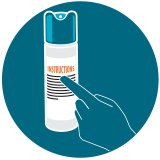
Use Insect Repellent
Use Environmental Protection Agency (EPA)-registered insect repellents with one of the active ingredients below. When used as directed, EPA-registered insect repellents are proven safe and effective, even for pregnant and breastfeeding women.
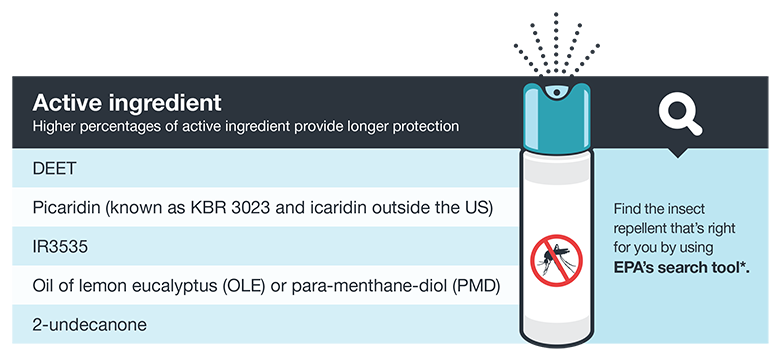
*See EPA’s search tool here.
Tips for Everyone
- Always follow the product label instructions.
- Reapply insect repellent as directed.
- Do not spray repellent on the skin under clothing.
- If you are also using sunscreen, apply sunscreen first and insect repellent second.
Tips for Babies & Children
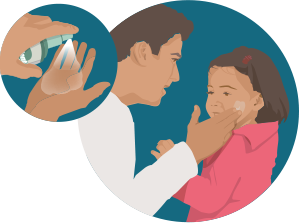
- Always follow instructions when applying insect repellent to children.
- Do not use insect repellent on babies younger than 2 months old.
- Do not apply insect repellent onto a child’s hands, eyes, mouth, and cut or irritated skin.
- Adults: Spray insect repellent onto your hands and then apply to a child’s face.
- Do not use products containing oil of lemon eucalyptus (OLE) or para-menthane-diol (PMD) on children under 3 years old.
Natural insect repellents (repellents not registered with EPA)
- We do not know the effectiveness of non-EPA registered insect repellents, including some natural repellents.
- To protect yourself against diseases spread by mosquitoes, CDC and EPA recommend using an EPA-registered insect repellent.
- Choosing an EPA-registered repellent ensures the EPA has evaluated the product for effectiveness.
- Visit the EPA website to learn more.
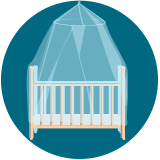
Protect your baby or child
- Dress your child in clothing that covers arms and legs.
- Cover crib, stroller, and baby carrier with mosquito netting.
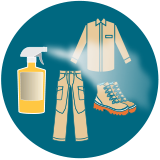
Wear long-sleeved shirts and long pants
- Treat items, such as boots, pants, socks, and tents, with permethrin* or buy permethrin-treated clothing and gear.
- Permethrin-treated clothing will protect you after multiple washings. See product information to find out how long the protection will last.
- If treating items yourself, follow the product instructions.
- Do not use permethrin products directly on skin.
*In some places, such as Puerto Rico, where permethrin products have been used for years in mosquito control efforts, mosquitoes have become resistant to it. In areas with high levels of resistance, use of permethrin is not likely to be effective.

Take steps to control mosquitoes inside and outside your home
- Use screens on windows and doors. Repair holes in screens to keep mosquitoes outside.
- Use air conditioning when available.
- Sleep under a mosquito bed net if air conditioned or screened rooms are not available or if sleeping outdoors.
- Once a week, empty and scrub, turn over, cover, or throw out items that hold water, such as tires, buckets, planters, toys, pools, birdbaths, flowerpots, or trash containers. Check inside and outside your home. Mosquitoes lay eggs near water.
If you have chikungunya, follow these instructions:
- During the first week of infection, chikungunya virus can be found in the blood and passed from an infected person to another mosquito through mosquito bites. An infected mosquito can then transmit the virus to other people.
- To prevent further spread of the virus, it is important for people to avoid mosquito bites during the first week of illness.
Read the Traveler’s Health Yellow Book for more information on Protection against Mosquitoes, Ticks, Fleas & Other Insects and Arthropods.
Traveling? Visit CDC’s Travelers Health website to see if the country you plan to visit has any travel health notices.

Fact Sheet: Mosquito Bite Prevention for the United States
- Page last reviewed: August 3, 2015
- Page last updated: August 25, 2017
- Content source:


 ShareCompartir
ShareCompartir